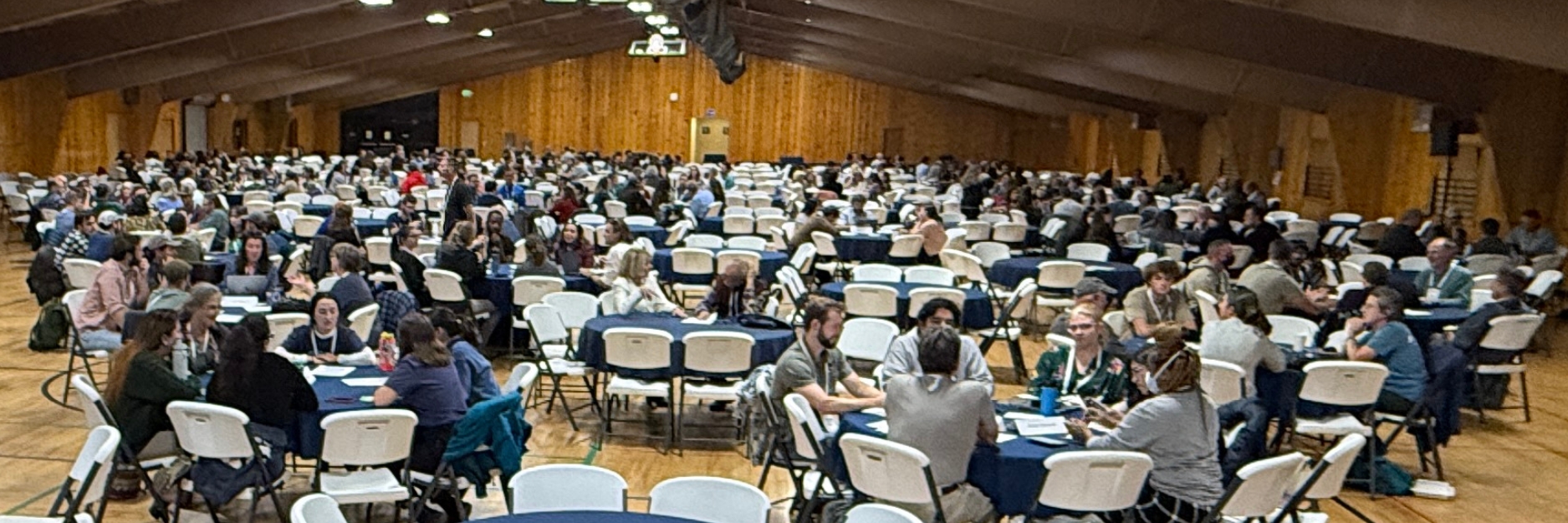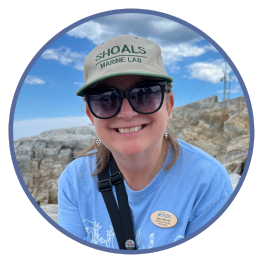In November 2023, the American Ornithological Society (AOS) announced a decision to change all eponymous and exclusionary English-language common names of birds within its geographic jurisdiction. Since then, the AOS has been working behind the scenes to respond to our members’ concerns, collect information about who could help with the emerging initiative, and provide our members a chance to shape a pilot project to rename six species.

On 3 October 2024, the AOS held a forum at our Annual Meeting to give our members an opportunity to share their collective wisdom to guide the English Common Bird Names pilot. The forum, attended by ~300 AOS members representing all career stages—from student to retiree—was an inspirational reminder of the thoughtfulness, engagement, passion, and consideration of our community. Despite an ongoing debate around the AOS’s decision to change all eponymous common bird names, AOS members came together with constructive, forward-thinking, and creative perspectives to help guide the AOS towards a successful pilot project. Working in small groups of 4–9 participants, our members explored how to ensure we include a variety of viewpoints in the naming process, considerations for selecting new names, opportunities to build broader support for conservation, and how to measure the pilot project’s success. It was a joy to see and overhear some of these collaborations—respectful and constructive dialogue, consideration of multiple viewpoints, and excitement to help shape a positive process.

After the forum, each facilitator summarized their group’s discussion and submitted their summary to AOS leadership. With the support of Amani Edwards, AOS’s Diversity and Inclusion Coordinator, we compiled responses from each group and used a qualitative evaluation tool to extract common themes. To ensure that the English Common Bird Names Pilot Committee has access to the complete breadth of thoughts and ideas our members generated, Amani developed a report that we will share with the Pilot Committee.
Some of the major themes we heard from AOS members at the forum include:
The importance of meaningful engagement with stakeholders
- Consider engagement with different participant groups beyond ornithologists, including with Indigenous people;
- Consider unique community knowledge, such as on distinctive bird behaviors or local names already in use;
- Cultural diversity and broad representation, including inclusion of individuals who are not AOS members, will be important within the group developing and leading the pilot process;
- Building bridges and trust with different stakeholders will help ensure that our outreach is not seen as an afterthought, or performative.
Strategies for useful public engagement
- We need to reach broad groups; outreach in public schools and at public meetings is one way to achieve this;
- Consider developing a communication plan and media strategy to educate and inform both specific stakeholder groups as well as the general public;
- Local and regional engagement is important to increase education about birds and their conservation issues;
- There were cautions against open-ended public feedback, creating a system in which all comments were publicly visible, or allowing names to be chosen by a “popular vote.”
Important considerations for determining strong names
- Visually descriptive names, names referencing distinctive behaviors, alternate names already in use (including Indigenous names or existing descriptive names in other languages), and names that would be translatable into other languages were seen as strong alternatives to consider;
- There were cautions about the use of geographic references in bird names because few birds are limited to one specific place.
Continued engagement with a broad range of opinions
- The decision to change eponymous English bird names has elicited a variety of opinions; there were concerns that individuals who disagree with the decision to change harmful bird names could be driven away from ornithology or conservation;
- There was encouragement to engage people with a broad range of perspectives in the renaming process, including those who might disagree with the decision, but not to let individuals who disagree with the decision impede the process.
Timing considerations
- Concerns that the process has taken so long that we may lose trust or momentum if the process is too lengthy;
- Suggestions about ways to maintain momentum during a long process;
- Importance of minimizing the impact of changes to field guides and organizations that use bird names.
Forum participants also offered additional practical suggestions on how to collect data (e.g., polling, surveys, questionnaires, etc.), and resources to share that could guide informed naming (e.g., photos of males and females of each species, using Birds of the World species accounts, etc).
Over the last several months, AOS President Sara Morris has been reaching out to prospective pilot committee members to build a balanced and knowledgeable pilot committee, and AOS staff have been compiling resources to share with the new pilot committee, once it’s launched. Our approach has been slow and steady because we want to get this right, and we are so grateful to the AOS community for the thoughtful and constructive guidance you have provided. We remain committed to moving forward with this initiative and appreciate the support our community has provided to help AOS think through the opportunities and challenges of changing some English common bird names. We want to express gratitude to the many forum facilitators who helped create an opportunity for our members to provide constructive feedback about the English common bird name change pilot, and to all of our members who took the time to help AOS consider the best way forward.
Signed,

AOS President

AOS President-Elect

AOS Executive Director & CEO

AOS Treasurer

AOS Secretary
I hope and assume that you are considering reaching out to state ornithological societies, who in turn can reach out to local chapters/bird clubs, as part of the public involvement strategy. They are important participants and allies in this process as they continue to try to be relevant to their local communities and promote bird conservation. They are also often concerned about how to recruit young birders and young adults, with whom these efforts may particularly resonate. Thank you for your ongoing efforts. I have been including these efforts in the Master Naturalist courses that I teach in our state. That is another potential state-level program/group of people who would be interested and could be allies.